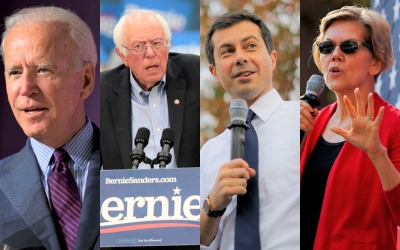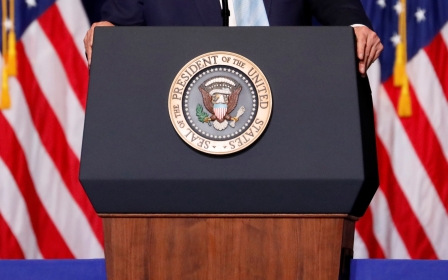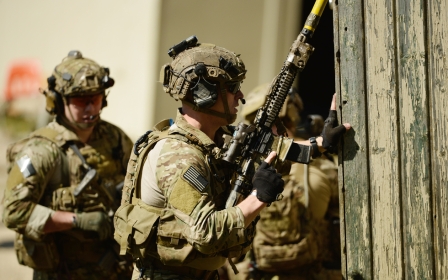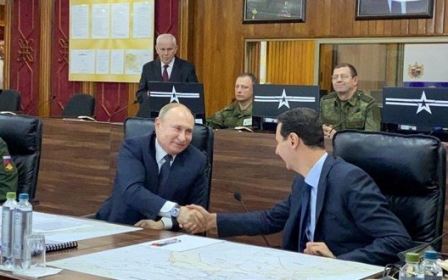Trump says US troops will 'eventually' leave Iraq, but not now
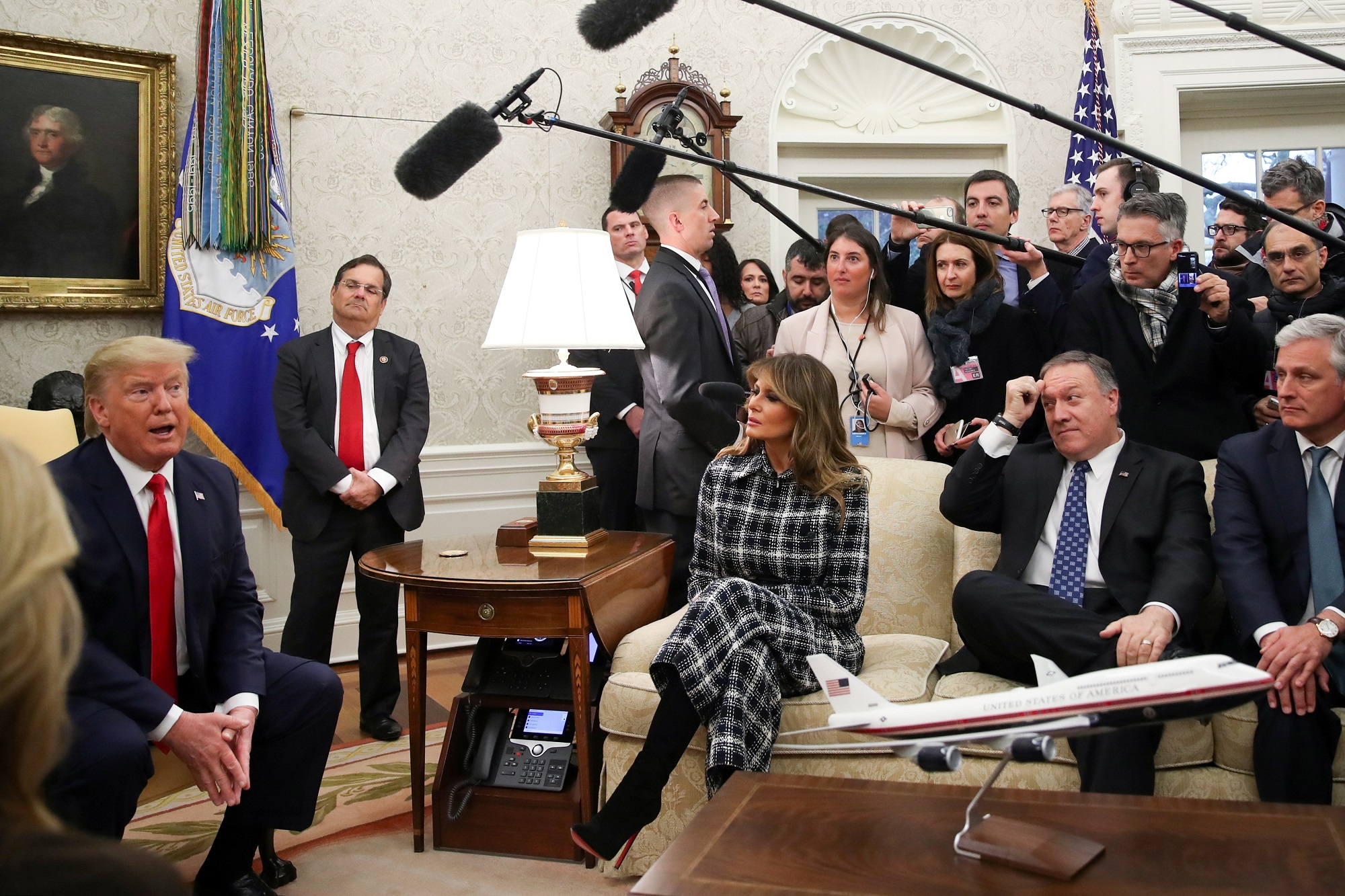
US troops will "eventually" leave Iraq, but now is not "the right point" for an American withdrawal, Donald Trump has said following confusion and uncertainty about Washington's plans.
Speaking to reporters from the White House on Tuesday, the US president said that when American troops do withdraw from Iraq, Washington will seek compensation from Baghdad for the money it had spent in the country since invading in 2003.
It is not clear what costs exactly Trump was referring to, but he did cite "airports" constructed by US forces and Washington's own embassy in Baghdad.
"If we do get out, we've spent a tremendous amount of money on building airports. It's one of the largest embassies we have in the world," Trump said. "And we want to be reimbursed for the various costs that we have had, and they're very significant, but we'll work something out."
Relations between Iraq and the United States have been tense over the assassination of top Iranian general Qassem Soleimani in Baghdad last week.
New MEE newsletter: Jerusalem Dispatch
Sign up to get the latest insights and analysis on Israel-Palestine, alongside Turkey Unpacked and other MEE newsletters
Both the Iraqi parliament and Prime Minister Adel Abdul Mahdi have called on US troops to leave the country.
Over the weekend, Trump threatened Baghdad with "big sanctions", a pledge that he repeated on Tuesday, saying he will penalise Iraq if America is not "treated with respect".
Confusion had ensued on Monday after the US military mistakenly sent a letter to the Iraqi government informing Baghdad that American soldiers had started withdrawing from the country.
The Pentagon later clarified that it has no plans to immediately leave Iraq, and that the letter was merely a draft that should not have been released.
Trump dismissed the said letter on Tuesday, suggesting that the media is to blame for the mishap for failing to report that the letter was "unsigned".
The US president went on to say that an imminent US withdrawal would be "the worst thing" for Iraq.
"If we leave that would mean that Iran would have a much bigger foothold. And the people of Iraq do not want to see Iran running their country - that I can tell you," he said.
Facing further questions about the letter, Trump turned to Secretary of State Mike Pompeo who was sitting to his right.
"The Iraqi people understand that we're there to help them stand for their sovereignty," Pompeo said.
'Monster'
Trump also defended his decision to kill Soleimani, saying that the Iranian general was planning attacks against Americans.
Soleimani was killed with Abu Mahdi al-Muhandis, a top commander in the Iraqi paramilitary group, the Popular Mobilisation Units (PMU).
Trump erroneously said that Soleimani was travelling with the "head of Hezbollah".
He was a monster, and he's no longer a monster. He's dead.
- Trump on Qassem Soleimani
"They weren't there to plan a vacation. They weren't there to a nice resort some place in Baghdad," the US president said. "They were there to discuss bad business. And we saved a lot of lives by terminating his life."
Trump also called Soleimani the slain Iranian general. "He was a monster, and he's no longer a monster. He's dead."
Pivoting back to domestic politics, the US president, who was impeached by the House of Representatives last month, hit out at Democratic presidential candidates criticising the assassination, saying that the only people complaining about Soleimani's death are "politicians trying to win the presidency".
On Tuesday, he appeared to walk back his weekend threat to target Iranian cultural sites if Tehran retaliates against Americans for Soleimani's killing.
Trump's threat, which would constitute a war crime, had been denounced by people across the political spectrum, prompting the Pentagon to rule out such a possibility.
"They're allowed to kill our people. They're allowed to maim our people. They're allowed to blow up everything that we have, and there's nothing to stop them, and we are - according to various laws - supposed to be very careful with their cultural heritage," Trump said.
"And you know what, if that's what the law is, I like to obey the law ... I will say this, if Iran does anything that they shouldn't be doing, they're going to be suffering the consequences."
Middle East Eye delivers independent and unrivalled coverage and analysis of the Middle East, North Africa and beyond. To learn more about republishing this content and the associated fees, please fill out this form. More about MEE can be found here.


